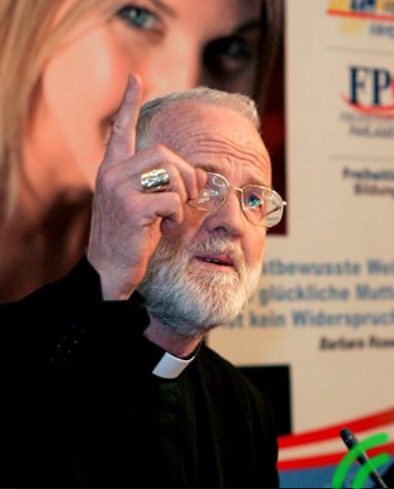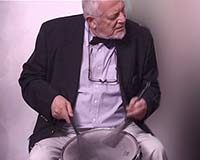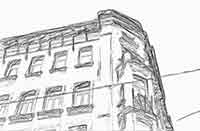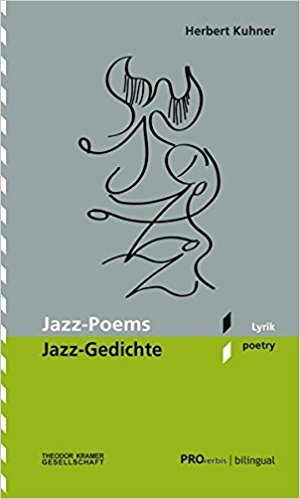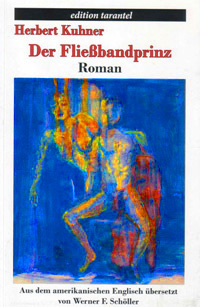Doing the Assassin in
My mother and I were in my grandmother’s apartment, which was adjacent to ours in our house in Rueppgasse. I witnessed the ransacking of my ransacking my grandmother’s apartment in Rueppgasse by SA-marauders. I was three at the time. When the doorbell rang, I ran to the door to open it. My mother swept me up as two SA-men in street clothes entered. I still see the expression of horror and disdain on her face.
One of the men, I remember clearly, led the way. He had reddish hair, wore a brown suit and limped. The other was thin, had sparse grey hair and wore a grey suit.
They searched the apartment. The brown-suited man shoved my grandmother, who was eighty-three, away from the sideboard in order to ransack it. And indeed it contained her shopping money.
That event is as sharp my mind as on the day that it occurred. Of course at the time I was not able to understand specifics, but I sensed that evil had come into my young life. The tone was set.
Now there were treks to offices to apply for visas, and waiting for hours and hours in those dreary places.
We remained in “Ostmark” for a year and a half before leaving for England. In 1939 I became an emigré. I had that identity until it changed to remigré in 1963.
Let me insert if I’d had the chance in later years, I’d have polished off those SA-criminals without batting an eye. And I’d have gone off whistling. That of course would have been in an “ideal” situation that almost never occurs.
Nick Gets His Chance
In the novel Eleni by Nicholas Gage and the film directed by Peter Yates, Nick the protagonist gets that chance. As a child he witnesses communist-partisans in Greece separating children from their parents in order to send them to Iron-Curtain countries for an ideological upbringing. Those who refused were brutalized and then executed.
The military juntas of the South American Dirty Wars adhered to the same system. They took children from their left-wing parents and presented them to barren right-wing Catholic families. The parents of the children suffered the same fate as their Greek counterparts.
The novel and film are named after Nick’s mother. She was one who refused.
As a grown man Nick seeks out the man who had been responsible for what had happened.
He finds a frail grandpa living with adult children and small grandchildren in a crowded apartment.
The former murderous politico is now a pitiful oldie.
Needless to say, Nick leaves without having done what he had set out to do.
Pistol-Packin’ Harry
Summery:
I was invited to the Foreign Ministry
for tea and cookies
in exchange for my John Hancock.
The tea was lukewarm,
the cookies were stale
and I did not sign on the dotted line.
I was to be discredited
and forever compromised.
The Guy is a Nutcase
Dr. Kraus presents his analysis in the Austria Presse Agentur:
“I have never done anything that could be considered injurious
to Herbert Kuhner It’s a pity that he sits at home with his fantasies.
There are reasons for that, but not real ones….
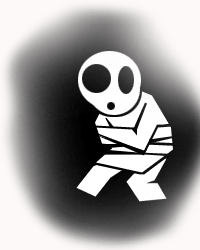
He Wants to Help!
He is in a different psychological situation. “I still hope I can help him.”
(APA 19/1/77)
And He’s Dangerous.
During the battle of words, my courageous adversary stated before witnesses that he feared that the nutcase might gun him down at the Literary Society.
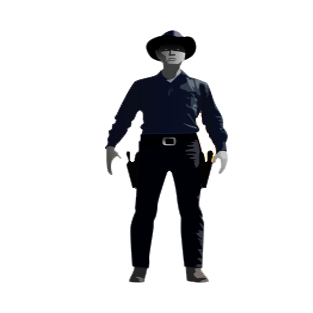
Just call me Pistol-Packin’ Harry! Bang! Bang!
The Good Doctor Changes His Tune
“I am glad to inform you that I fully appreciate the literary merits your client Herr Kuhner as a poet, and above all, as a translator of Austrian poetry.”
Anonymous Call
April 15, 1980:
At 9:15 this morning, I received an anonymous telephone call. I quote the caller:
“Herr Kuhner, if you do not withdraw your case,
we will send the public health officer.”
The caller then hung up.
The phone rang again, There was silence on the other end.
The caller did not answer my queries as to who was on the line.
I then hung up.
Proof
“You cannot prove that the call came
from the Foreign Ministry.”
– Sigrid Löffler, literary critic
Well, maybe the good Doctor was right. Maybe Pistol-Packin’ Harry had his sights on him.
But we’ll never really know. He died a natural death in September of 1998.
– Herbert Kuhner










 Users Today : 24
Users Today : 24 Users Yesterday : 144
Users Yesterday : 144 This Month : 2421
This Month : 2421 This Year : 22705
This Year : 22705 Total Users : 180800
Total Users : 180800 Views Today : 28
Views Today : 28 Total views : 1874916
Total views : 1874916 Who's Online : 1
Who's Online : 1

